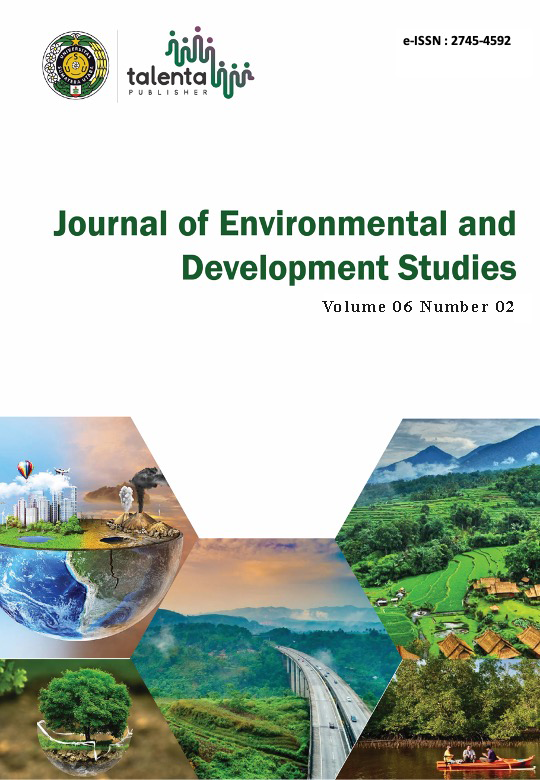Performance of Social Forestry Implementation at UPTD KPH IX Panyabungan
Abstract
Social forestry (PS) is a form of sustainable forest management within state forest areas where local communities act as the leading actors to improve welfare, ecological balance, and socio-cultural dynamics. Although PS has been promoted to reduce poverty, increase local income, and strengthen forest conservation, many groups still face challenges in management, compliance, and financial sustainability. At the UPTD KPH IX Panyabungan, several social forestry groups have obtained legal approval but continue to struggle with fulfilling regulatory performance indicators, particularly in business development, area management, and financial contributions to the state (PNBP). This research was conducted in the North Sumatra Forest Management Unit Regional IX Panyabungan, involving four active social forestry groups (KPS): KTH Permata Belantara and KPS Sampean Jaya (HKm), KPS Globe Mangrove Indah (HD), and KPS Koperasi Rizki Jaya (HTR), selected from a total of seven groups at the site. This study aims to analyze the performance of KPS as PS approval recipients. The research employed a qualitative approach using field observations, in-depth interviews, and document analysis, with evaluation criteria and indicators based on the Regulation of the Minister of Environment and Forestry No. 9/2021. The novelty of this study lies in evaluating both the economic impacts and compliance performance of KPS after PS approval, while most previous studies mainly emphasized ecological or participation aspects. The results show that KPS fulfilled institutional indicators and generated additional income: KTH Permata Belantara (Rp. 31.9 million/year), KPS Sampean Jaya (Rp. 17.75 million/year), and KPS Gubeg Mulyoharjo Indah (Rp. 36.96 million/year). They also received capital support and planted 18,293 trees over three years. However, optimization is still needed in area management, business development, and non-tax state revenue (PNBP) payments. Thus, stronger institutional support, capacity building, and monitoring are required to ensure that PS not only meets administrative targets but also delivers measurable improvements in community welfare and forest sustainability.
Downloads

Downloads
Published
Issue
Section
License
Copyright (c) 2025 Journal of Environmental and Development Studies

This work is licensed under a Creative Commons Attribution-ShareAlike 4.0 International License.













